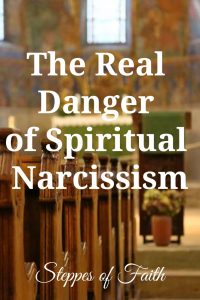
For your brother was dead and has come back to life! He was lost, but now he is found!” Luke 15:32
Many of us are familiar with the story of the prodigal son in Luke 15. A young man demands his inheritance from his father so he can go and party it up in a far-off land. After spending all the money, he is forced to find work. He goes to work for a local pig farmer, and one day as he is feeding the pigs, he realizes that the animals eat better than him. So, he decides to go home, beg for his father’s forgiveness, and, hopefully, be allowed to become a servant.
We know the father comes running when he sees his son (an incredibly undignified thing for a man to do at the time). He puts his finest robe and a ring on his son and calls for the fatted calf to be killed. It was time to celebrate! What once was lost was now found.
It is a beautiful story. We love happy endings. But was it?
Jesus told this richly layered story to emphasize several points at the same time. The first point is about parenting and forgiveness. The second point is about humility and not being afraid to say you messed up. And the third that you may not know is about spiritual narcissism.
Introducing the Older Brother
“Meanwhile, the older son was in the fields working. When he returned home, he heard music and dancing in the house, and he asked one of the servants what was going on. ‘Your brother is back,’ he was told, ‘and your father has killed the fatted calf. We are celebrating because of his safe return.’ The older brother was angry and wouldn’t go in. His father came out and begged him, but he replied, ‘All these years I’ve served you and never once refused to do a single thing you told me to do. And in all that time you never gave me even one young goat for a feast with my friends. Yet when this son of yours comes back after squandering your money on prostitutes, you celebrate by killing the fatted calf!’ His father said to him, ‘Look, dear son, you have always stayed by me, and everything I have is yours. We had to celebrate this happy day. For your brother was dead and has come back to life! He was lost, but now he is found!’” Luke 15:25-32 NLT
At first glance, the older brother’s reaction seems reasonable. He is the one who was always responsible, always worked hard, did everything he was told to do like a good boy. And what thanks did he get? Now, his reckless little brother has come home after wasting all their father’s money, and there is a party going on. How can that be?
If we take a closer look, we see the older brother has a really bad attitude. He is only thinking about himself; he is whining and complaining, and he is angry. Very angry. So, he says to his father…
“Yet when this son of yours…”
“…You never gave me even one young goat for a feast with my friends.”
Can you hear the disrespect and the whining?
Jesus is trying to warn us about our spiritual attitudes in this parable. He is warning us about the dangers of spiritual narcissism.
What is Narcissism?
We probably have at least a vague idea of what a narcissist is, but what are the actual signs and symptoms?
According to Psychology Today, narcissists…
- Tend to be highly insecure
- Are prone to lies and exaggerations
- Presume entitlement
- Like to arouse negative emotions in others to make themselves feel powerful and keep them off-balance
- Work hard to keep the attention on themselves (both positive and negative)
- Often lack empathy for others
Looking back at Luke 15, we can see that the older brother exhibited many of the above traits. He…
- Had no empathy toward his younger brother.
- Exhibited a sense of entitlement to anything he wanted.
- Blew the entire situation out of proportion.
- Disrespected his father seemingly to create an argument.
- Tried to turn the situation around so all the attention was on him.
The older brother definitely had an issue with narcissism. His insecurity and doubt of his father’s love prove it. But this type of narcissism was not what Jesus was talking about.
Spiritual Narcissism
Jesus would not want any of us to behave the way the older brother did. It is hardly Christ-like. But what Jesus was trying to point out was not the danger of behavioral narcissism but spiritual narcissism.
When we act like the older brother, we are putting the focus of our spiritual life on us and not on others where it should be. We are not empathetic toward their spiritual wellness and salvation because we want all the attention for ourselves. We put all the focus on our own spirituality, and we lose sight of what is truly important.
Remember Jesus’ last command—the Great Commission—before He ascended to heaven.
“Go therefore and make disciples of all the nations, baptizing them in the name of the Father, and of the Son, and of the Holy Spirit, teaching them to observe all things that I have commanded you.” Matthew 28:19-20
Jesus does not want us to focus solely on our personal spiritual walks. We must turn our attention to saving the lost and welcoming them home with open arms.

Pursuing and Celebrating
Turning our attention away from our spiritual goals and put it all on reaching others happens through only with the long process of spiritual maturity. It takes some measure of learning and growing in Christ, but the real growth comes by humbling ourselves and allowing Him to use us for His service.
Another part of spiritual maturity comes from remembering God’s promise that He is always with us. Remember He is always faithful in His love, and (just like the father in the parable) everything He has is ours.
“Look, dear son, you have always stayed by me, and everything I have is yours.” Luke 15:31
We already have everything we need because of God’s great provision. Once we grasp that, we can more easily get the attention off our spiritual needs and wants and join God in His pursuit of the lost.
The Other Two Parables
Just before the parable of the prodigal son, Jesus illustrated the idea of pursuing the lost and celebrating when they are found in two other parables. One was about leaving the ninety-nine to chase after one lost sheep.
“And when [the shepherd] has found it, he lays it on his shoulders, rejoicing. And when he comes home, he calls together his friend and neighbors saying to them, ‘Rejoice with me, for I have found my sheep which was lost!’” Luke 15:5-6
Jesus immediately after tells the parable of the woman who lost a valuable coin. She turns the house upside down looking for it. When she finds it, she calls her friends and neighbors together and says, “Rejoice with me, for I have found the piece which I lost!” (Luke 15:8-10)
At the end of both the sheep and coin stories, Jesus sums them up by saying there is joy in heaven over one sinner who repents than over many who will not. It is a true reason to celebrate. But notice that someone had to be willing to put their focus on the lost—someone willing to chase the sheep or turn the house upside down—and making it their goal to find them.
This takes true spiritual maturity.
The Spiritual Metaphor of Narcissism
Jesus’ big metaphor in the story of the prodigal son is that the Pharisees are just like the older brother. Because of their narcissism, they behave hypocritically as religious leaders. They lack true empathy for others, demand everyone’s attention, and presume entitlement. They have no sense of sin or real love for the Father, and they certainly are not interested in saving the lost. Their only concern is themselves—their need to be right, and their need for power.
Jesus warns us very clearly that we should not be like the Pharisees. We cannot become so caught up in our Christian bubble that we forget Jesus’ Great Commission. Our focus needs to stay on reaching the lost and not on ourselves. Otherwise, we become like the older brother.

Heeding Jesus’ Warning
Which brother are you? Are you like the younger brother where you are willing to humble yourself and repent? Or are you like the older brother, tending to be more focused on yourself than you should be?
Or are you like the father? Are you willing to watch and wait patiently for someone who is lost? Are you willing to forgive and celebrate with heaven when he or she is found?
Maybe you are like both the younger son and the father, having both characteristics. But if you identify more with the older brother, it is time for some self-examination of your spiritual maturity.
Heed Jesus’ warning and do not be like the older brother because your spiritual narcissism will keep you from sharing in God’s joy, and you will very likely miss the big party. Remember, Jesus said not everyone will enter the kingdom of heaven. We never want to hear Jesus say, “I never knew you; depart from Me, you who practice lawlessness (Matthew 7:23).”
Endeavor not to be like the older brother. Choose today to humble yourself and seek God’s will. Join Him in His pursuit of the lost. The celebration that follows is sure to be beautiful. Not just here and now but for eternity.
Further Reading
If someone you know tends to behave like the older brother in the prodigal son parable, you might want to check out the article from Psychology Today. Dr. Preston Ni lays out the different traits of narcissists and gaslighters and how their behavior can be potentially dangerous and destructive without professional therapy.
Contact your local domestic abuse shelter or the National Domestic Violence Hotline if you feel things are getting far too out of hand or if you’re being harmed in any way. They can confidentially answer your questions and give you helpful suggestions about how to handle things. You can remain anonymous if you wish, or you can provide your information so they can better help you find safety if necessary.

The fresh idea is here). I’ve read the post with great satisfaction and even could
know something new that I will use for my further requirements.
The guide is bright and clear, with no further worthless facts or else,
it reminded me https://deanrenfrosays.com/learn-algebra/. The language is both brilliant and vivid, so the more I read, the more I really do enjoy it!
Anyway, the information is rather cutting edge, so just like it.
Very kind of you to say, Sawyer. I appreciate your support and blessings. Thanks for stopping by.
Enjoyed this. I love it when different angles are brought out, and I don’t believe anyone has pointed this out before. Good topic. Blessings.
Blessings to you too, Jena. Thanks so much for stopping by!
I have to admit that I have, from time to time, found spiritual narcissism in my own heart. This was a good reminder to keep myself in check.
I have too, Summer. Aren’t we so glad that we serve such a patient and gracious God who is so willing to forgive us and welcome us home like the prodigal? The Lord is good all the time. We only need to keep fighting the good fight. Thanks so much for coming by.